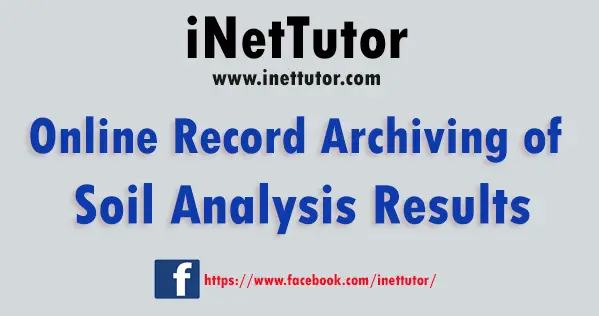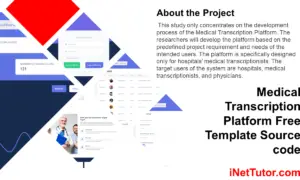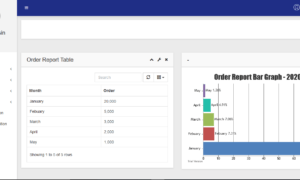Online Record Archiving of Soil Analysis Results
Proposed System
Our world as we know it today, technology has played a big role in our daily routines. The task of technology is to create a better and easier way for ourselves while living in this world. One of this is the record keeping of different soil analysis. Soil analysis has been used as an aid in assessing soil fertility and plant nutrient. In conjunction to this, the researchers of the proposed study aimed to provide a platform wherein the records of soil analysis are kept and managed. Through the system farmers who tested their soils on a regular basis would have a reference in comparing data from different sampling times to see if there are changes affecting the fertility of their soils. The system will serve as a centralized location for results of soil analysis. Through the system record keeping will be convenient for sides, the admin and the user. The proposed system will made a development in the manual system of record keeping. This would provide convenience to the user.

System Implementation
The proposed system Online Record Archiving of Soil Analysis Results will be presented to the end user. Through this process, questions and clarification about the system will be answered by the end user. Also, suggestions will be accepted for the betterment of the system. Through this, the system will be further enhanced.
Objectives of the Study
- To provide a system that would maintain the records of soil analysis result.
- To let user have an easy access and efficient records of soil analysis.
- To provide a system that would serve as a centralized location to be utilized by the users.
- To provide convenience and a hassle free transactions to the users.
To let users have a fast, secure and efficient way of references involving soil analysis.
Significance of the Study
The user, admin and proponents of the study will benefit from this project.
User. It will be convenient for them in keeping records of their soil analysis. They will be hassle free. This will give them an assurance that the results of their soil analysis will be kept securely.
Admin. The system is easy to manage for them. This would not take so much of their effort and time.
Proponents. If this study will succeed the proponents will thoroughly understand the project. These study will enhance their knowledge about the project.
Project Plan/SDLC
In operating this system the researchers used the software development cycle (SDLC), an overall process which consists of six cycles. First, is to determine the requirements. It is where the researcher determines the requirements of the proposed system, whether software or hardware to be used. Next step is to gather data. This is where the researchers conduct interviews to the management office in order for them to gather relevant data for the operation of the system. After the researchers gathered all the important data, it is time for them to analyse it. They analyse the data for them to be able to identify the necessary information needed for the development of the proposed system to give some solutions. Next cycle will be the phase designing, the researchers designed the system relating to the desire future. Specification and operation in detail and some conceptual model of the user requirements where produced. The last cycle is coding. The researcher will encode all the codes with the hand of the technical expert to check if it has error or the program will debug successfully. In order to determine the reliability of the system, they undergo testing using incorrect data. Maintaining the system is also part of it.
You may visit our Facebook page for more information, inquiries, and comments. Please subscribe also to our YouTube Channel to receive free capstone projects resources and computer programming tutorials.
Hire our team to do the project.


